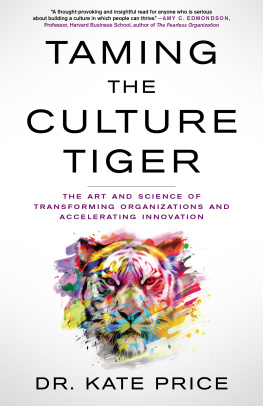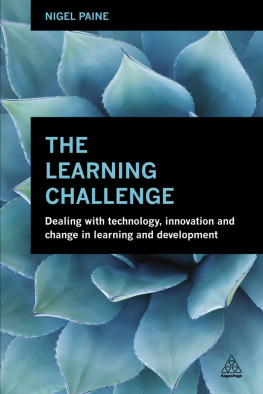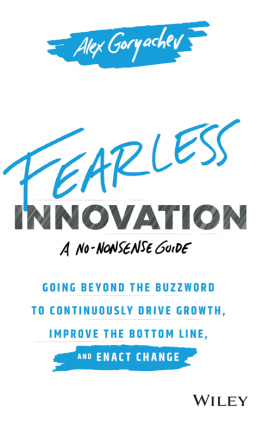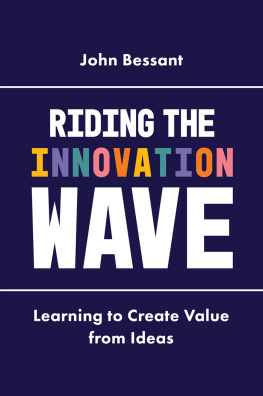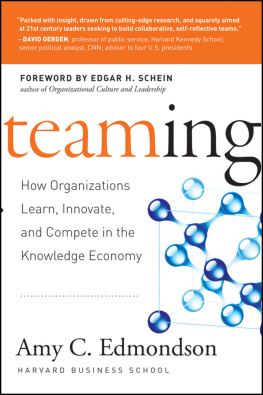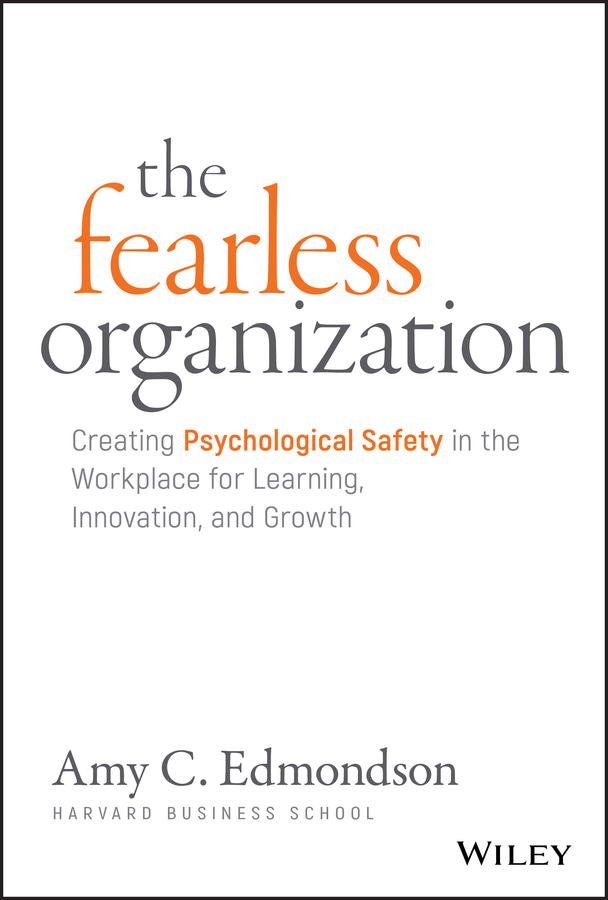Amy C Edmondson - The Fearless Organization: Creating Psychological Safety in the Workplace for Learning, Innovation, and Growth
Here you can read online Amy C Edmondson - The Fearless Organization: Creating Psychological Safety in the Workplace for Learning, Innovation, and Growth full text of the book (entire story) in english for free. Download pdf and epub, get meaning, cover and reviews about this ebook. year: 2018, publisher: Wiley, genre: Politics. Description of the work, (preface) as well as reviews are available. Best literature library LitArk.com created for fans of good reading and offers a wide selection of genres:
Romance novel
Science fiction
Adventure
Detective
Science
History
Home and family
Prose
Art
Politics
Computer
Non-fiction
Religion
Business
Children
Humor
Choose a favorite category and find really read worthwhile books. Enjoy immersion in the world of imagination, feel the emotions of the characters or learn something new for yourself, make an fascinating discovery.

- Book:The Fearless Organization: Creating Psychological Safety in the Workplace for Learning, Innovation, and Growth
- Author:
- Publisher:Wiley
- Genre:
- Year:2018
- Rating:4 / 5
- Favourites:Add to favourites
- Your mark:
The Fearless Organization: Creating Psychological Safety in the Workplace for Learning, Innovation, and Growth: summary, description and annotation
We offer to read an annotation, description, summary or preface (depends on what the author of the book "The Fearless Organization: Creating Psychological Safety in the Workplace for Learning, Innovation, and Growth" wrote himself). If you haven't found the necessary information about the book — write in the comments, we will try to find it.
The Fearless Organization: Creating Psychological Safety in the Workplace for Learning, Innovation, and Growthoffers practical guidance for teams and organizations who are serious about success in the modern economy. With so much riding on innovation, creativity, and spark, it is essential to attract and retain quality talent--but what good does this talent do if no one is able to speak their mind? The traditional culture of fitting in and going along spells doom in the knowledge economy. Success requires a continuous influx of new ideas, new challenges, and critical thought, and the interpersonal climate must not suppress, silence, ridicule or intimidate. Not every idea is good, and yes there are stupid questions, and yes dissent can slow things down, but talking through these things is an essential part of the creative process. People must be allowed to voice half-finished thoughts, ask questions from left field, and brainstorm out loud; it creates a culture in which a minor flub or momentary lapse is no big deal, and where actual mistakes are owned and corrected, and where the next left-field idea could be the next big thing.
This book explores this culture of psychological safety, and provides a blueprint for bringing it to life. The road is sometimes bumpy, but succinct and informative scenario-based explanations provide a clear path forward to constant learning and healthy innovation.
Explore the link between psychological safety and high performance
Create a culture where its safe to express ideas, ask questions, and admit mistakes
Nurture the level of engagement and candor required in todays knowledge economy
Follow a step-by-step framework for establishing psychological safety in your team or organizationShed the yes-men approach and step into real performance. Fertilize creativity, clarify goals, achieve accountability, redefine leadership, and much more.The Fearless Organizationhelps you bring about this most critical transformation.
Amy C Edmondson: author's other books
Who wrote The Fearless Organization: Creating Psychological Safety in the Workplace for Learning, Innovation, and Growth? Find out the surname, the name of the author of the book and a list of all author's works by series.

